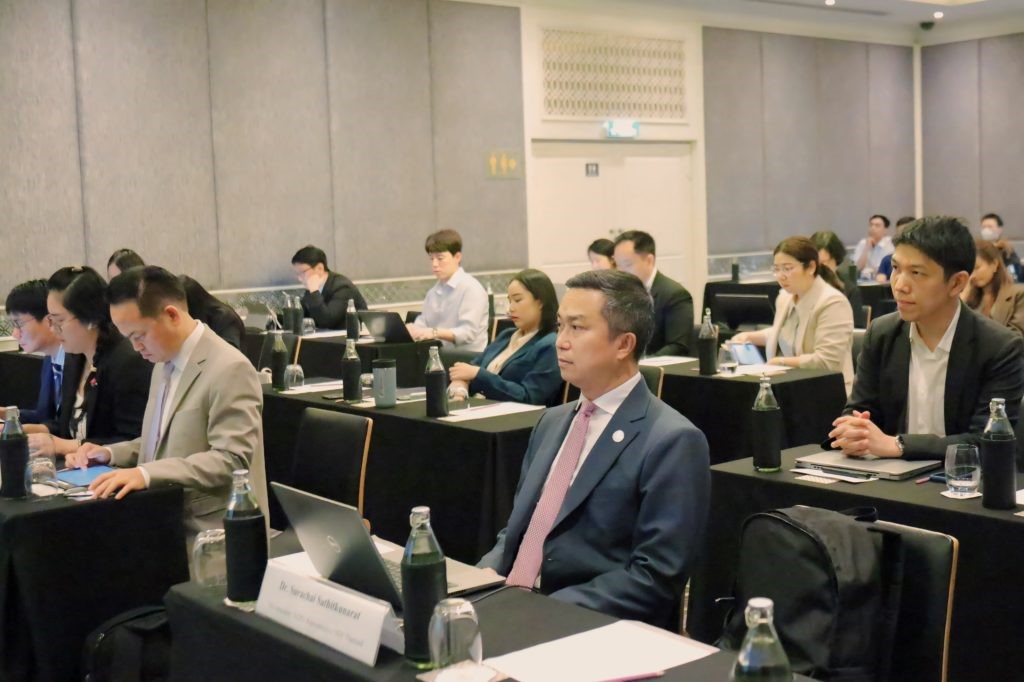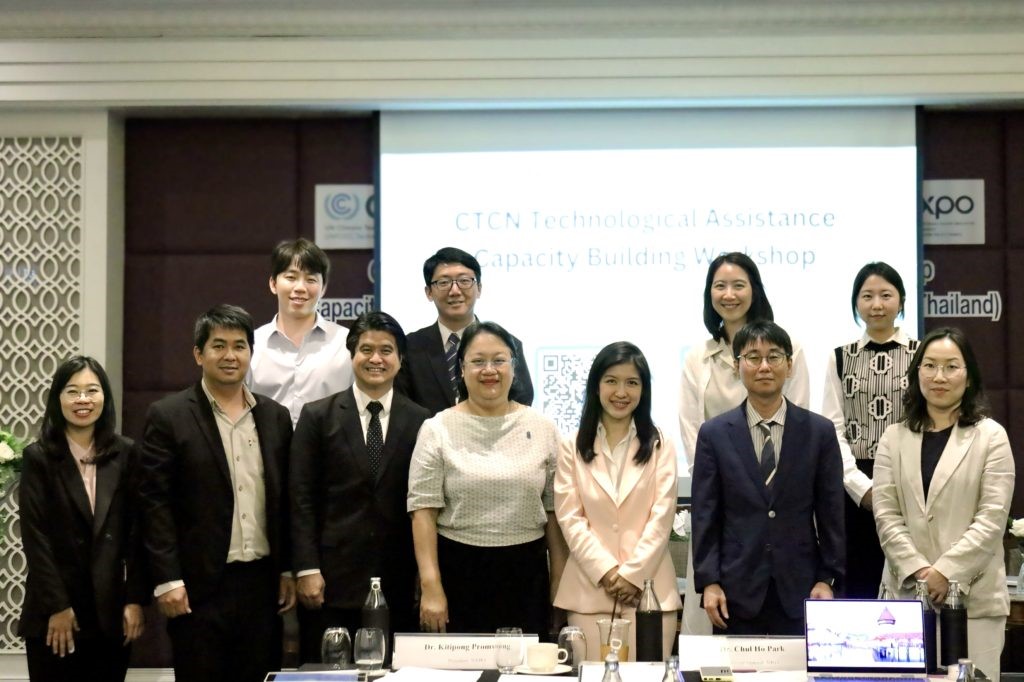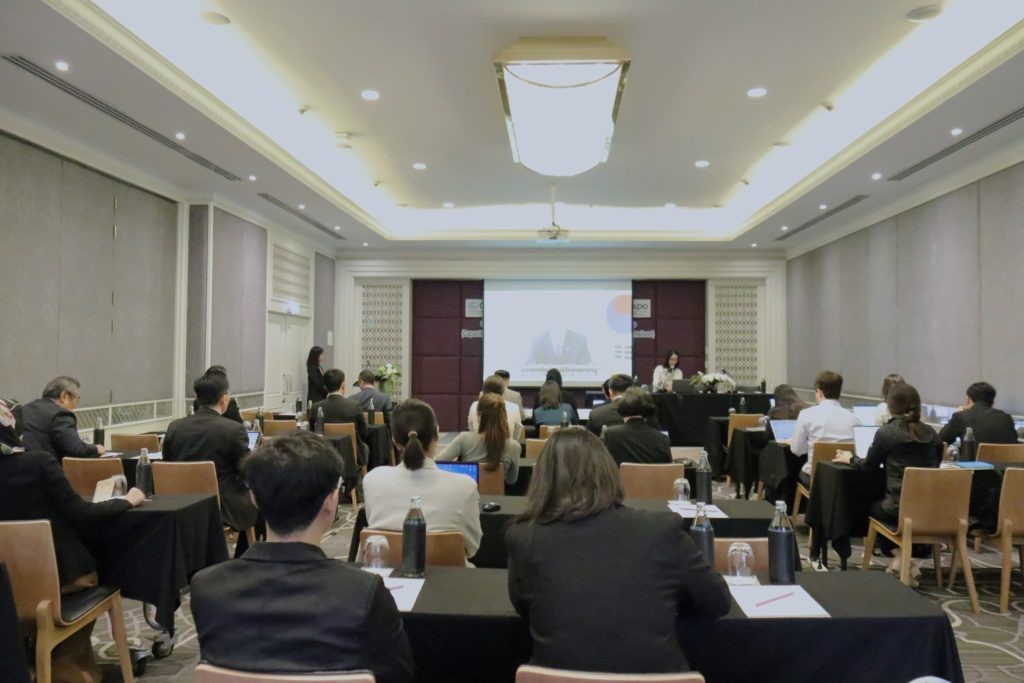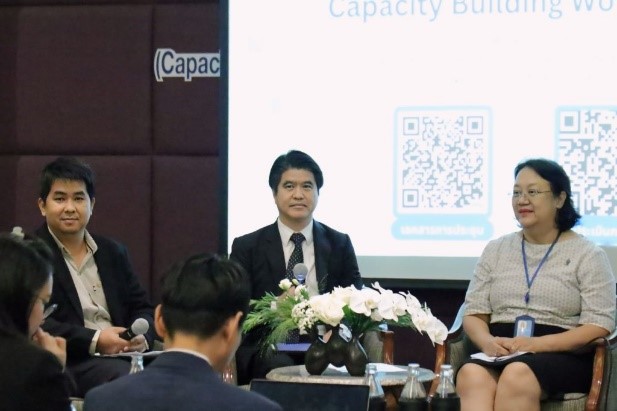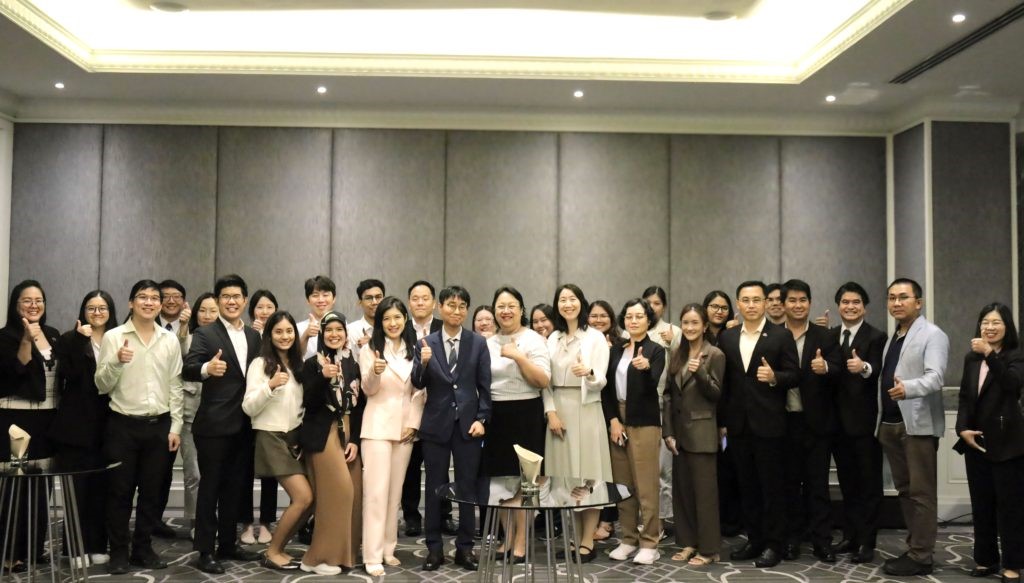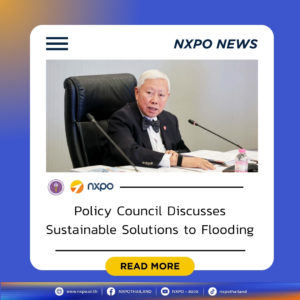The Ministry of Higher Education, Science, Research and Innovation (MHESI), through NXPO, in collaboration with the National Institute of Green Technology (NIGT) of Korea, hosted the “CTCN Technological Assistance Capacity Building Workshop” on 20-21 May 2024 at the Sukosol Hotel Bangkok. This workshop was conducted under the technical assistance mechanism of the Climate Technology Centre and Network (CTCN) of the United Nations Framework Convention on Climate Change (UNFCCC). More than 100 representatives from government agencies, research and academic institutes, and companies involved in hydrogen technology development attended the event to support Thailand’s energy transition.
In his welcome remarks, NXPO President Dr. Kitipong Promwong highlighted NXPO’s role as Thailand’s national designated entity (NDE) for the UNFCCC technology development and transfer mechanism. He noted that since Thailand ratified the Paris Agreement in 2016, the country has set policies on climate change, including the development of Nationally Determined Contributions (NDCs) to reduce greenhouse gas emissions in alignment with the Paris Agreement’s goal of keeping global temperature rise below 2 degrees Celsius.
Dr. Kitipong emphasized that to reduce greenhouse gas emissions to 300 million tons of carbon dioxide by 2030, Thailand must employ various approaches, including promoting carbon capture and storage (CCS) technology and transitioning to biomass and renewable energy such as solar energy. In this regard, NXPO has been instrumental in promoting solar rooftop installations in 50 universities under the Green Campus initiative.
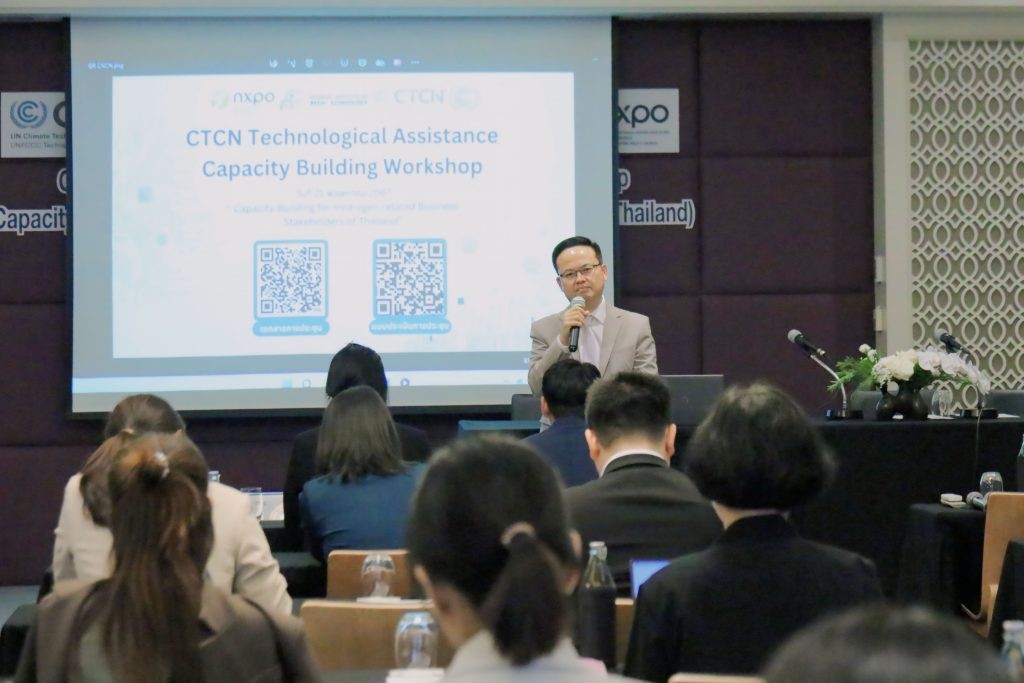
“Hydrogen energy represents another promising option to accelerate net zero emissions goal,” said Dr. Kitipong. “Recognizing Thailand’s potential to implement hydrogen technology, CTCN funded a feasibility study. As South Korea has made significant progress in this area with initial government support, NIGT was invited to serve as the project consultant. The study team has performed data collection and analysis and is planning for the transfer of hydrogen production technology to Thailand.”
Dr. Son Ji Hee, Head of Center for Global Strategy at NIGT, presented on the awareness of climate change crisis. With as many as192 countries having joined the Paris Agreement in 2015, there is an urgent need for innovative solutions to address climate change and enhance international cooperation. However, developing countries require financial and technological support to fulfill their climate change commitments. To address this need, a technology mechanism has been established within the UNFCCC, along with a financial assistance mechanism, to promote technology exchange and leverage international cooperation.
Dr. Park Chul Ho, Director General of NIGT and Manager of the Development of a National Hydrogen Strategy and Action Plan for Accelerating Thailand’s Net-zero Target Project, outlined the progress in developing Thailand’s national hydrogen strategy and net-zero action plan. The process involves identifying an efficient way to implement the project, estimating domestic demand, selecting suitable hydrogen production technologies for Thailand, and sharing Korea’s experiences with Thailand.
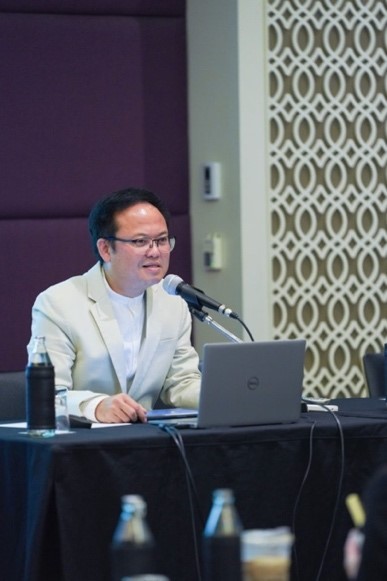
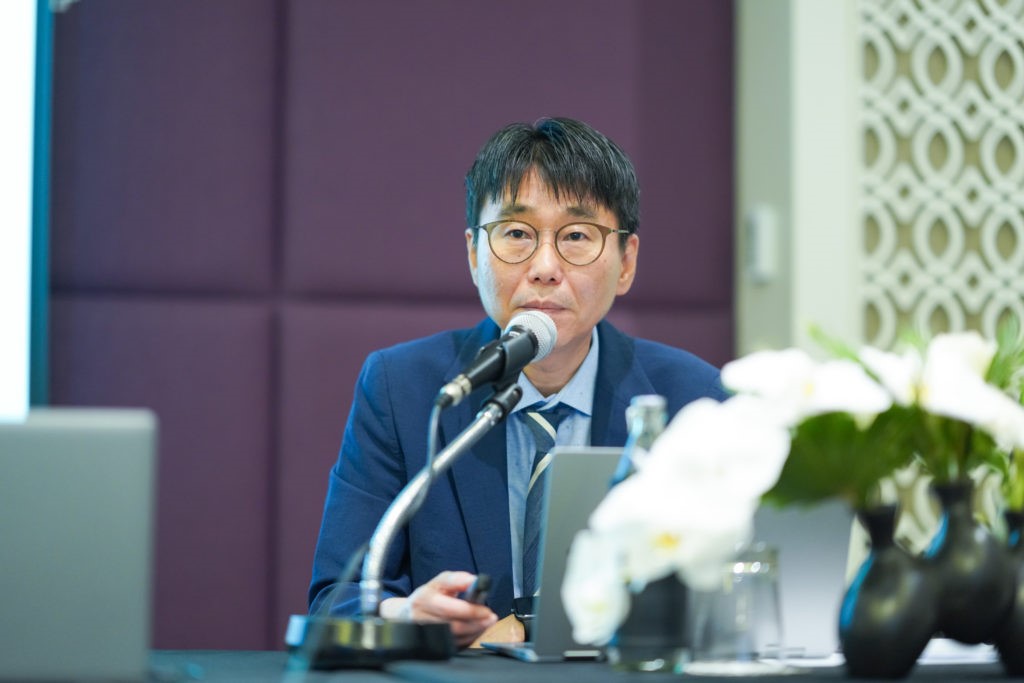
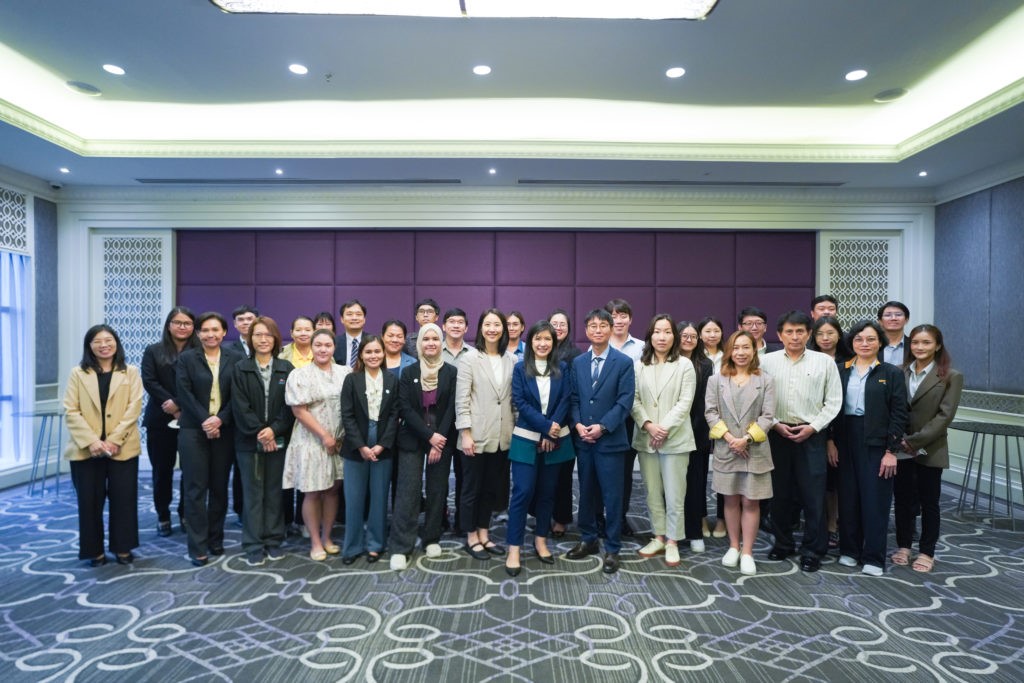
Hydrogen development in the business sector was presented, with a case study on the business model of the Chungju Food Waste Bioenergy Center in South Korea. Dr. Yeo Joon Ho discussed the government’s investment in building a biogas production center from community food waste. The biogas undergoes steam reforming to produce high-purity green hydrogen. The center has a production capacity of 300 Nm3/h (approximately 348 cubic meters per hour). The produced hydrogen gas is stored in high-pressure tanks, with a portion supplied to an on-site hydrogen fueling station and the rest transported to other stations in Chungju. This business model is deemed suitable for Thailand.
Dr. Son Ji Hee also discussed the climate technology finance mechanisms, focusing on the Green Climate Fund (GCF) under the UNFCCC which aims to assist developing countries in implementing climate change adaptation and mitigation initiatives. To obtain GCF funding, a letter of intent must be submitted by the country’s national designated authority (NDA). Eligibility of the submitted agency is reviewed before proceeding to accredited entities (AEs). Thailand needs to establish its own AE to increase funding opportunities and to present energy-related projects, such as hydrogen energy, on international platforms.
Dr. Kim So Eun, NIGT Researcher, explained the roles and examples of AEs and presented cases of technology financing. AEs are certified organizations, regional or national entities, that submit project proposals for funding to the GCF Board. Financial support from the GCF is available in the form of grants or loans. Examples of AEs from South Korea and Thailand were provided.
The workshop concluded with a panel discussion featuring key players in international financial support. Panelists included Mr. Wissarut Muangpluem from DCCE (Thailand’s NDA); Ms. Sukanya Thongthumrong, an AE of UNDP; and Dr. Thana Sornchamni from Hydrogen Thailand Club. The panel discussed hydrogen’s potential as clean energy to achieve carbon neutrality and its current limitations due to high costs and investment. To successfully implement hydrogen energy in Thailand, the government must make initial investments and seek support through international finance mechanisms. As Thailand’s NDA for the GCF, DCCE plays a crucial role in identifying suitable AEs for the country. Over the course of two days, participants gained comprehensive information on hydrogen energy development, including policy, models implemented in various countries, production preparation, utilization, and sustainability. Hydrogen energy is expected to be extensively explored from 2045 onwards, contributing to net-zero greenhouse gas emissions by 2065.
